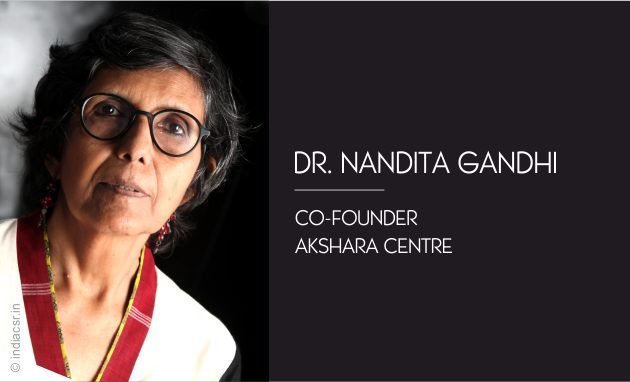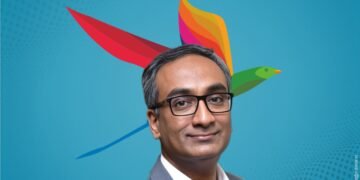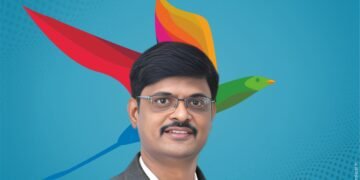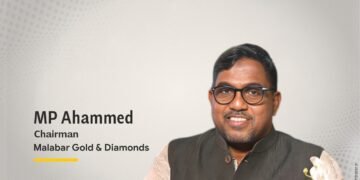Dr Nandita Gandhi is the Co-founder of Akshara Centre, a Mumbai based non-profit organization working for women’s empowerment and they have been working relentlessly on making Mumbai a safe city for the last two decades as they join hands with the government. She has been active in the contemporary Indian Women’s Movement since the 1980s and a core group member of South Asian Network of Gender Trainers.
In an interview with India CSR Network’s Rusen Kumar, Dr Nandita Gandhi said Akshara Centre works with the individual, the community, the Government and the State. Without governmental intervention, we cannot reach the scale or have a possibility of long term institutional change.” Edited excerpts:
Tell us about Akshara Centre. What is your vision for Akshara Centre?
Akshara Centre is a women’s organisation which believes that all women and girls in society should be equal and empowered. The two go hand in hand – the process of being empowered builds the determination to be equal and in struggling to be equal, you are empowering yourself. Our vision is a gender just and equal society for men, women and others.
Like most ngos, Akshara is a small organisation taking up a big message and programs for a new society and a changed way of thinking. Its strength lies in its collaborations with other likeminded groups and ngos, with educational institutions like colleges, with the media as in the HT’s Make Mumbai Safer for Women Campaign, with state authorities like the police, BMC, Railways and BEST.
What are your insights on the current scenario of women empowerment in India?
It’s a schizophrenic scenario for women today. Many would argue that women have never had it so good. We have the right to vote, abortion and legal rights which are the most favourable in the world for women – constitutional rights and specific laws on domestic violence, rape and some progressive laws for marriage and divorce. There are more women working outside the home than before. The arts and sports are blooming with women. Women are in panchayats looking after their villages. But there is a dark underbelly. In every institution in society, there is gross discrimination against women. Within the family, she is disinherited, partially educated, controlled and married off as early as possible. In education institutes she is guided to take up ‘women oriented’ courses and later jobs. At the workplace, she is the butt of sexual harassment and given different and low paying jobs. Temples and mosques refuse to admit women devotees.
Akshara Centre’s role has been pivotal in building different public private partnerships and have institutionalized initiatives with the Police and Local Municipalities, Transport authorities for creating safer cities for women. What made you start these movements and explain the impacts?
Partnerships are important. Yes, there is the power of one and then there is the power of the collective.
No one is going to hand you equality, even though it is part of our Constitution, we will have to struggle for it with ourselves, with others, rid ourselves of years of gender socialisation, challenge societal norms that subordinate women. Akshara works for personal and political changes. People should change themselves and deeply believe in equality. And we need to create enabling conditions for women to start making our own choices. We believe that the two issues which we must immediately take up so as to bring a change in the lives of women – are access to education and prevention of violence. One gives exposure, knowledge and information and the other removes the barriers of fear. So we have three broad programs for young women and men.
The Empowering Dreams Program works with underprivileged young women and financially supports their dreams for higher education. We also take them through a Life Skills and a Technical Skills training so that they are equipped to be self confident, aware of their rights, to resist violence and be job ready. Over 5000 girls have received scholarship support.
The rate of violence against women is skyrocketing. Every hour some 39 crimes against women are reported and we have no idea of the many crimes which go unreported in police stations because women don’t want to go public or face legal hassles. Our Youth for Change Programs urges young men to be allies in the movement against violence. Youth are supported to become ‘gender champions’ who introspect and question their own gender inequality and then challenge the way society treats women or challenges traditional gender norms. We work in 20 colleges in Mumbai city. Over the years we have enrolled 25000 gender champions.
To make public spaces safe, we work with the police in establishing emergency helplines, training bus conductors to handle sexual harassment cases, and railway police to prevent harassers. We have expanded the role of conductors and reached out to 22000 conductors and drivers and have incorporated gender module in the refresher training curriculum.
One of the most recent achievements has been to ensure that new revised Development Plan for Mumbai is gender inclusive and for the first time in the history of our country, a gender chapter has been included in city plan document. It is going to mean huge land reservation for amenities and services for women including multipurpose housing, child care and senior citizen care centres, hawking space and increased public toilets.
Akshara Centre works with the individual, the community, the Government and the State. Without governmental intervention, we cannot reach the scale or have a possibility of long term institutional change. Public campaigns, on the other hand, help us change the gender narrative – at railway stations, on the streets. Social media brings the message of equality to the public. And lastly unless the individual changes himself/herself, we will not get to “be the change we want to see.”
How do you manage the funds for carrying out your activities?
Akshara centre runs on donations from individuals and corporations; we are situated in premises give to us by the BMC; and from programmatic funding by donor agencies like UN Women and other foreign and Indian foundations.

























